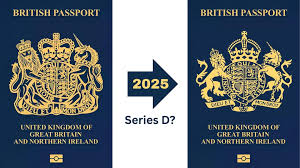
Introduction
The British passport remains one of the most recognised travel documents in the world, granting its holders access to numerous countries without the need for a visa. With changes in global travel dynamics and immigration policies, understanding the significance and regulations surrounding the British passport is increasingly relevant. In recent months, applications for British passports have surged due to the influx of travel plans post-pandemic, highlighting the importance of being well-informed about the process.
Current Trends and Changes
As of late 2023, the UK government has reported a significant rise in passport applications, mainly attributed to the easing of travel restrictions and an increase in international tourism. The UK Passport Office announced that they are working to reduce processing times, which in some cases has reached up to ten weeks. This was primarily due to a backlog caused by the pandemic as many applications were delayed.
Additionally, the introduction of digital services has made the application process more efficient. Citizens can now renew their passports online, eliminating the need for physical paperwork for many. This digital push not only speeds up the application process but also aims to streamline operations at the Passport Office, thus reducing wait times.
Important Application Requirements
Applicants must meet specific requirements to obtain or renew a British passport. Firstly, individuals must show proof of British nationality, which can be established through birth certificates, registration certificates, or naturalisation paperwork. Furthermore, new photo requirements now stipulate that photographs must be taken to a high-quality standard, while ensuring they meet all specifications outlined by the Passport Office.
Another vital aspect of the British passport is its validity. Adults can expect their passports to be valid for ten years, while children’s passports last for five years. However, travellers are advised to ensure their passports have at least six months’ validity from their date of entry into foreign countries, as many nations require this for visa exemption.
Conclusion
Understanding the intricacies surrounding the British passport is essential for those planning to travel internationally. With ongoing changes in processing times and application methods, it is imperative that British citizens stay informed. As travel continues to rebound, the expectation is that the government will further improve services to accommodate the increasing demand and ensure a simplified experience for all applicants. For anyone considering travel, now is the time to check the status of their passport and make the necessary preparations to avoid any issues upon departure.
You may also like

Discovering the Beauty and Culture of Norway

Exploring Monmouth: History, Attractions and Community

Understanding Glasgow Airport and Its Significance
SEARCH
LAST NEWS
- Remembering Wendy Richard: The Promise to Co-Star Natalie Cassidy
- How Did Anglian Water Achieve an ‘Essentials’ Rating for Mental Health Accessibility?
- Shai Hope Leads West Indies in T20 World Cup Clash Against South Africa
- What We Know About Weston McKennie: Future at Juventus and Past at Leeds
- What We Know About the Upcoming Live Nation Antitrust Trial